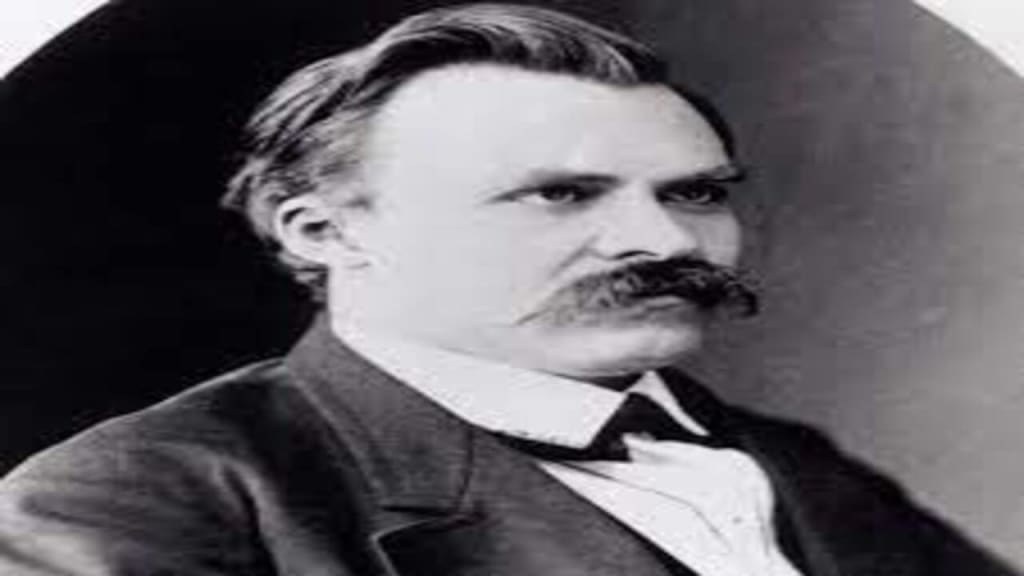Friedrich Nietzsche
A Philosopher Beyond Good and Evil

Friedrich Nietzsche
A Philosopher Beyond Good and Evil
Friedrich Nietzsche, born on October 15, 1844, in Röcken, Germany, was a profound and controversial philosopher whose ideas continue to resonate in the world of philosophy and beyond. Nietzsche's works have had a profound impact on various fields, including philosophy, literature, psychology, and cultural studies. Despite his relatively short life and battles with mental health, Nietzsche left an indelible mark on intellectual discourse, challenging conventional wisdom and questioning the very foundations of morality, religion, and human nature.
Nietzsche's upbringing in a pious and academically inclined family deeply influenced his intellectual development. His father's untimely death when Nietzsche was only five years old left a lasting impact on him. Nietzsche's mother and sister, who played significant roles in his life, instilled in him a strong religious and moral background. These early influences set the stage for Nietzsche's later exploration of morality and the human condition.
After excelling in school, Nietzsche pursued classical philology at the University of Bonn and later at the University of Leipzig. It was during his studies that Nietzsche encountered the works of influential philosophers such as Arthur Schopenhauer and Friedrich Albert Lange. Their ideas sparked Nietzsche's intellectual curiosity and set him on a path of philosophical exploration.
Nietzsche's academic career flourished as he became a professor of classical philology at the University of Basel at the young age of 24. However, his true passion lay in philosophical inquiry, and he soon shifted his focus to the study of morality, culture, and the nature of existence. Nietzsche's early works, such as The Birth of Tragedy (1872) and "Untimely Meditations" (1873-1876), introduced his unique blend of classical scholarship and philosophical speculation.
However, it was with the publication of Thus Spoke Zarathustra (1883-1885) that Nietzsche gained significant recognition. In this seminal work, Nietzsche introduced his famous concept of the Übermensch or Superman, a figure who transcends societal norms and embraces individual power and creativity. Nietzsche challenged conventional morality and championed the idea of creating one's values, free from the constraints of traditional religious and moral frameworks.
Nietzsche's critique of Christianity, particularly his concept of the death of God, stirred controversy and provoked widespread debate. He argued that traditional religious beliefs no longer held relevance in the modern world and that humanity needed to create its own values based on individual strength and will to power. This notion struck at the heart of established religious and moral systems, making Nietzsche a highly controversial figure.
Nietzsche's philosophical ideas extended beyond traditional academic realms. He explored the psychological aspects of human existence, delving into the complexities of human desires, instincts, and the struggle for power. His concept of the will to power emphasized the fundamental drive for dominance and self-realization that underlies human behavior. Nietzsche's psychological insights anticipated developments in fields such as existentialism and psychology, influencing thinkers like Sigmund Freud and Carl Jung.
However, Nietzsche's intellectual journey was not without personal challenges. In 1889, at the age of 44, Nietzsche suffered a mental breakdown that left him incapacitated for the rest of his life. He spent his remaining years under the care of his mother and sister, living in seclusion and writing sporadically. Nietzsche's deteriorating mental health overshadowed his earlier accomplishments, and he passed away on August 25, 1900.
Despite his tragic end, Nietzsche's ideas have continued to shape philosophical discourse long after his death. His works, including Beyond Good and Evil (1886), On the Genealogy of Morality (1887), and The Gay Science (1882), have influenced generations of thinkers and inspired intellectual movements such as existentialism, postmodernism, and the philosophy of the will to power.
Nietzsche's legacy is a complex and often debated one. Some view him as a nihilist, while others see him as a liberating force that encourages self-discovery and the rejection of oppressive social structures. Regardless of the interpretation, Nietzsche's contributions to philosophy remain significant, challenging the status quo and encouraging critical examination of cherished beliefs.
Friedrich Nietzsche's life and ideas exemplify the power of intellectual exploration and the willingness to question deeply ingrained assumptions. His relentless pursuit of truth, coupled with his unique writing style and aphoristic prose, continue to captivate readers and ignite intellectual discourse. Nietzsche's call for individual self-overcoming and the revaluation of all values remains a potent reminder of the importance of intellectual courage and independent thinking.
About the Creator
imran khalil
In a world where words shape our perceptions, ignite our imaginations, and connect us across time and space, article writers play a crucial role in delivering informative and engaging content. Among these skilled communicators,
Enjoyed the story? Support the Creator.
Subscribe for free to receive all their stories in your feed. You could also pledge your support or give them a one-off tip, letting them know you appreciate their work.





Comments
There are no comments for this story
Be the first to respond and start the conversation.